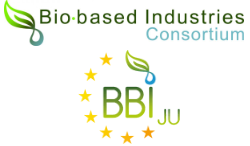Author: Katrin Weinhandl, acib GmbH
What does the topic of ethics have to do with research on enzymatic plastics recycling? Ethical considerations play an important role in any research approach that conforms to the concept of responsible research and innovation (RRI). Wikipedia explains RRI as a term that “describes scientific research and technological development processes that take into account effects and potential impacts on the environment and society”. In addition, RRI requires adherence to high ethical standards.
For the specific topic of enzymatic plastics recycling this may include issues of sustainability, safety, and equitable distribution of benefits and impacts. The project team must strive to reduce negative environmental impacts, while promoting the sustainable use of resources. The novel approach should be safe for the environment (and, of course, for workers) during application, meaning our researchers must ensure that their work does not contribute to or perpetuate harm to people, communities, or the environment. Furthermore, transparency in the development is critical to build trust and accountability among stakeholders.
How does ENZYCLE meet these requirements?
ENZYCLE is an EU project and as such was required to undergo an ethical review before the project began. It must comply with ethical guidelines, such as the EU’s Charter of Fundamental Rights, the EU’s General Data Protection Regulation (GDPR), and the European Convention on Human Rights.
In addition to a work package specifically dedicated to ethics, the structure of the ENZYCLE project implementation includes a comprehensive validation part alongside the development of the process. The technical validations aim to provide a clear picture of the process performance: How much microplastic can be degraded in wastewater treatment plants and how effective is the enzymatic process for multilayer packaging and post-consumer PET trays or clamshell containers? How well does the synthesis of new polymers from PET depolymerization products work? These questions will be answered by the technical validations.
The assessment of the sustainability under the perspective of life cycle assessment, life cycle costing and techno-economic assessment is the subject of another work package in the project.
Stakeholder engagement in the RRI concept
Stakeholder engagement is a critical component of RRI and ethics in research. The ENZYCLE stakeholder engagement concept aims to align the internal research approach with external values and priorities of different stakeholder groups. For this purpose, we continuously work to identify relevant stakeholder groups and invite them to special workshops and briefings on ENZYCLE results right from the beginning. It is crucial to foster effective dialogue and give stakeholders ample opportunity to provide feedback and ask questions. We are committed to engaging in a co-creations process, which helps our scientists to shape the research agenda and gives stakeholders an active role in achieving a relevant impact of enzymatic plastics recycling.




